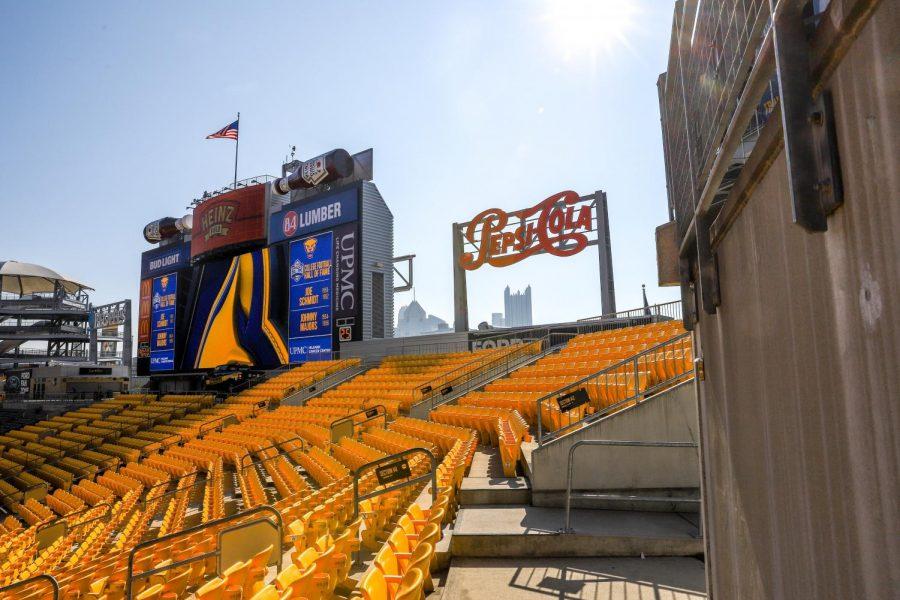Supreme Court unanimously rules against NCAA’s cap on student-athlete educational compensation
Kaycee Orwig | Senior Staff Photographer
The Supreme Court voted on Monday against the NCAA’s rule preventing universities from providing educational benefits past $5,000 to each player. This ruling takes another step towards college athletes being eligible to be paid for their athletic performance.
June 22, 2021
The NCAA has held a tight grip on student-athletes and collegiate sports for more than a century. The association has passed numerous controversial rules that have prevented college athletes from profiting off of their name, image and likeness, in an effort to maintain the amateurism surrounding college sports.
But the latest U.S. Supreme Court ruling against the NCAA marks another small, but significant, step towards college athletes having the ability to be compensated for their athletic performances.
The Supreme Court unanimously ruled on Monday against the NCAA and its regulations that put a $5,000 limit on education-related benefits. Outside of tuition and boarding, schools could not provide educational benefits — such as tutoring services, computers and books — past this relatively low cap to each of its athletes.
Former West Virginia football player Shawne Alston and former University of California basketball player Justine Hartman led the charge against the NCAA, both claiming the association was blatantly ignoring federal antitrust laws, namely the Sherman Antitrust Act.
These laws prevent restricting competition in the marketplace — of which, according to the former players, the NCAA is blatantly in violation. Supreme Court Justice Brett Kavanaugh wholeheartedly agreed with the two former athletes.
“The NCAA’s business model would be flatly illegal in almost any other industry in America,” Kavanaugh said in a concurring opinion.
ACC Commissioner Jim Phillips expressed excitement regarding the ability to compensate athletes with educational benefits but said in a statement that the conference will continue to monitor the development of the situation.
“The ACC will continue to evaluate the Supreme Court decision that was delivered this morning,” Phillips said. “The ruling by the justices provides clarity surrounding educationally based benefits and we look forward to engaging our conference membership in our efforts to best serve and support our student-athletes.”
Pitt Athletics declined to offer a statement and deferred to Phillips and the ACC’s statement until the situation developed further.
This latest decision neglected to bring forth the issue of athletes capitalizing on their NIL, but Alston and Hartman are making significant strides towards achieving this milestone for student-athletes across the nation.
Despite the court not addressing the NIL rules, the NCAA released a statement saying they were committed to changing this rule in cooperation with Congress going forward.
“Even though the decision does not directly address name, image and likeness, the NCAA remains committed to supporting NIL benefits for student-athletes,” NCAA President Mark Emmert said. “Additionally, we remain committed to working with Congress to chart a path forward, which is a point the Supreme Court expressly stated in its ruling.”
While it seems the former athletes have the courts on their side, Kavanaugh further reiterated that it will not be the judicial system that will fix the issues within college sports, but the legislative branch that will be responsible for repairing the currently broken system, quoting the lower court’s ruling on the case.
“The national debate about amateurism in college sports is important,” the court said. “But our task as appellate judges is not to resolve it. Nor could we. Our task is simply to review the district court judgment through the appropriate lens of antitrust law.”
A drastic change to college athletics seems to be coming — it seems to be just a matter of when rather than if.



